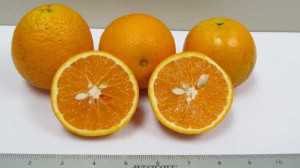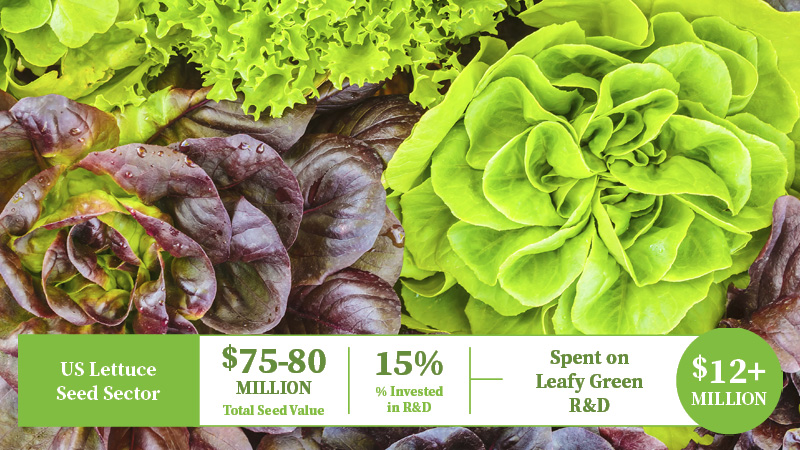Commercializing Sweet Oranges A Practice In Persistence
The primary channel of trade for high-quality sweet oranges in Florida is processing. More than 90% of these oranges will go into processed juice products. However, fresh packinghouses ship significant quantities of fresh oranges, and oranges represent the majority of fresh packed volume for some houses. While it is recognized some of these oranges will feed fresh packing lines, and some may even be planted expressly for use in fresh packing, their primary channel is expected to be processing.
Florida Foundation Seed Producers Inc. (FFSP) is a direct support organization of the University of Florida that manages the intellectual property, including U.S. plant patents, USDA PVP certificates, international plant breeder’s rights certificates, and trademarks for new and improved plant varieties (including citrus) released by the UF.
FFSP manages the technology transfer of released plant varieties. In a nutshell, new UF/IFAS citrus varieties that are approved for release are assigned to FFSP.
FFSP executes a path of introduction, guided by whether a release will be exclusively or non-exclusively licensed. Exclusive licenses are pursued when they are determined to be of benefit to UF/IFAS and the Florida industry. An example of a non-exclusive licensing strategy is seen in the licensing of varieties released from the UF/IFAS peach breeding program. FFSP non-exclusively licenses peach varieties to nurseries who propagate trees and make trees available to Florida peach growers. At the time of sale from the nursery to the grower, the nursery collects a royalty, which is remitted to FFSP and then re-invested in the UF/IFAS peach breeding program
In the case of fresh citrus, however, New Varieties Development & Management Corp. (NVDMC) has stepped forward on behalf of the industry to seek exclusive licenses for fresh citrus varieties to develop greater levels of management and control in the marketplace in order to protect the interests of the Florida grower. Opportunities for exclusive licenses from FFSP begin with a public announcement through an Invitation to Negotiate (ITN) process. Entities that respond to an ITN must demonstrate a production, commercialization, protection, and marketing plan for the plant variety. Public comment is invited and welcomed through the ITN process.
Vetting Valquarius
The Valquarius brand SF14W-62 early maturing Valencia-type orange was licensed exclusively by FFSP to NVDMC in 2009 through the ITN process. In early stages of commercialization, two nagging issues seemed to stall more widespread acceptance of this patented variety. First, growers and harvesters expressed concern about the thorniness. Today, fourth generation SF14W-62 budwood is very low-thorn.
Second, since the variety lacked critical mass, and its maturity overlapped with the early/mids, processing plants were faced with a dilemma: would Valquarius® brand SF14W-62 oranges enter the Valencia pool, even though (prior to the establishment of critical mass) the juice would likely be blended with juice of other early/mid varieties; or would juice just enter the early/mid pool? As this variety’s primary benefit to growers is its ability to produce Valencia quality in a much earlier window, if processors were unable to compensate growers for this improved quality, then grower adoption would naturally be slow. Each processor will have to make its own determination as to how they will handle Valquarius brand SF14W-62 oranges. Over time, growers and processors began to look seriously at SF14W-62 — but were concerned with the complexity, length, and content of the grower license agreements through NVDMC.

OLL-4
OLL-4 And OLL-8
Seeking a more streamlined process to support the release and early adoption of new UF/IFAS-developed sweet oranges, the NVDMC Board of Directors supported UF/IFAS’ and FFSP’s approach of non-exclusive licensing for OLL-4 and OLL-8.
Through this model, FFSP has non-exclusively licensed citrus nurseries for propagation of these varieties for sale to Florida citrus growers. Growers sign a non-propagation agreement at the time of purchase of trees from nurseries, and nurseries collect and remit royalties to FFSP to reinvest in the UF/IFAS citrus breeding program. This licensing process is almost identical to that which is used for crops such as peaches and blueberries.
 Valquarius Revisited
Valquarius Revisited
It was increasingly obvious to the NVDMC Board of Directors that oranges intended primarily for processing required a commercialization plan different from that which has been used for fresh citrus varieties. FFSP addressed the need to streamline the transfer of new sweet orange varieties into the groves of Florida citrus growers through a non-exclusive licensing process. Due to the size of Florida’s citrus industry, and the tremendous potential for large-scale plantings, NVDMC identified a need to solicit feedback in the process. NVDMC’s Board of Directors reached out to the other citrus trade organizations for appointments to a new Processed Orange Advisory Board (POAB). Recognizing the value of having such an entity to advise NVDMC, FFSP, and UF/IFAS on issues related to the commercialization of UF/IFAS sweet oranges, appointments were made by Florida Citrus Mutual, Florida Citrus Processors Association, Gulf Citrus Growers Association, Indian River Citrus League, Highlands County Citrus Growers Association, and Peace River Valley Citrus Growers Association. The POAB is a strong group with the experience and knowledge necessary to gather valuable feedback.
As of this posting, the POAB has met twice. One of their first recommendations was for NVDMC to relinquish its exclusive license for Valquarius brand SF14W-62, thus allowing FFSP to include this variety the previously mentioned non-exclusive licensing model with varieties such as OLL-4, OLL-8, B9-65 (USPPAF), N7-3 (USPPAF), N13-32 (USPPAF), and UF11-1-24 (USPPAF).
The POAB also has immersed itself in nuances in plant variety protection and licensing. They received a crash course in the structure and process of release and licensing of new UF/IFAS plant varieties, as well as the unique challenges presented by fresh and processed channels of trade. The POAB is keenly aware of the importance of communication and education. Here are some of the issues on their plate:
- Education and Communication: The POAB will advise NVDMC on ways to effectively communicate issues related to the commercialization of new sweet orange varieties to trade groups, regulatory bodies, growers, and nurseries.
- Protection of Intellectual Property: The viability of the UF/IFAS citrus breeding program depends on the infusion of new traits such as disease resistance and novel fruit characteristics via the international exchange of germplasm. U.S. and Florida agriculture is increasingly global — importing, exporting, and producing crops abroad. If a variety is not protected and licensed abroad, it falls into the public domain in foreign countries. Protection through U.S. plant patents only provides a means to protect a variety in the U.S. History has taught us that a variety with commercial value in production areas beyond Florida’s border, will find its way there through legitimate (legal) or illegitimate channels.
The best way to protect Florida’s interest in new plant varieties is to identify likely international markets, identify sound and reputable partners in those countries/states, and work with the partners to acquire appropriate protections for the intellectual property under the laws in those countries/states. Only then can the variety be defended against theft in those countries/states. Due to lengthy quarantine processes in many countries, production of varieties in foreign countries is often significantly delayed. While transitioning UF/IFAS varieties to foreign markets is emotional to Florida growers, and objectionable to some, it is the only way to ensure that the value of the intellectual property in the variety is captured and channeled back to support the breeding program, which is located in the heart of our industry for the benefit of our industry. Without adequate international protections, international plantings will inevitably occur, but no value will return to Florida to assist our breeders in developing new varieties for tomorrow.
The POAB will continue to meet with NVDMC, FFSP, and UF/IFAS to recommend solutions that protect the interests of the Florida grower and ensure that value is returned for the investments made here at home. - Royalties: The current royalty rate to Florida growers for all sweet orange varieties licensed by FFSP is $0.70 per tree. This rate was established with input from industry and economists within UF/IFAS. The intent was to establish a royalty rate that would provide growers with increased returns when compared to existing varieties and would incentivize adoption of the new varieties, while generating revenue to support and sustain the UF/IFAS citrus breeding program (in the face of declining funding for new citrus variety research and development). The POAB will continue to consider input of economists, growers, nurseries, UF/IFAS, and FFSP.
John Beuttenmuller, Florida Foundation Seed Producers Inc., also contributed to this article.










